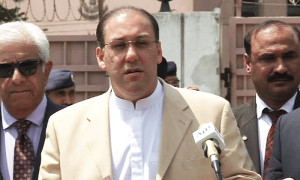Shah Shatranj
Chief Minister (5k+ posts)
دنیا بھر کے معاشی اعداد و شمار کسی سنگین بحران کی آمد کا عندیہ دے رہے ہیں . بڑے بڑے معاشی میدان کے جغادر دو ہزار آٹھ جیسا بحران دوبارہ ابھرنے کی پیشین گوئیاں کر رہے ہیں جن میں سے ایک ادارے فوربز نے چین میں ہونے والی معاشی سستی کے نتیجے میں پیدا ہونے والے بحران کے بارے خبر دار کیا ہے . جب کے یونان کے بعد پرتگال کی صورتحال بھی موجودہ نظام کی مخالف سمت بڑھ رہی ہے . ڈالر کی بڑھتی ہوئی قیمتیں نئی ابھرنے والی معیشتوں کو مشکلات کا شکار کر رہی ہیں جس سے ان کے قرضوں میں اضافے کے سبب نۓ بحران میں مزید اضافہ ہو سکتا ہے
دو ہزار آٹھ کے مالی بحران کے بعد بیشتر ملکوں نے مزید قرض لے کر اپنی معیشتوں کو مصنوئی سہارا دیا تا کے دوبارہ معیشت کھڑی ہو سکے مگر نہ تو معیشت بحال ہوئی الٹا قرضوں کا بوجھ بڑھ گیا .
آخر کب تک معیشتیں قرضوں کے سہارے چل سکتی ہیں آخر ایک اختتام بھی تو ہوتا ہے . ایسا ہی ایک اختتام یونان میں دیکھا جا رہا ہے جہاں یونان کے پاس قرض ادا کرنے کے لیے پیسے نہیں اور نیا قرض نہیں مل رہا قرض خواہ اپنی شرائط منوانا چاہتے ہیں جب کے ان کی عوام مزید کٹوتیوں پر راضی نہیں . ملک کا حال بد تر ہوتا جا رہا ہے جہاں بنیادیضروریات صحت و صفائی کے لیے بھی اب فنڈز میسر نہیں .

یونان میں سادگی کی مخالف مظاہرے
یہ بات اب قرض خواہوں کے
لیے بھی خطرناک ہے کہ ان کا قرض واپس نہ ہو ساری رقم ڈوب جاۓ. قرض واپسی کی سکت صرف یونان کی ہی نہیں ختم ہوئی بلکہ تمام یورپ جو قرضوں میں پھنسا ہوا ہے بشمول امریکا کے اپنے قرضے واپس کرنے کی اہلیت نہیں رکھتے یہ بات حسابی کلکلشنوں سے بھی باہر ہے کہ ان کا لیا گیا قرض کبھی واپس ہو گا. اور ایک ایسے ماحول میں جب دنیا میں معاشی ترقی پستی کی جانب گامزن ہو تو کیسے کاروبار بڑھیں گے اور کیسے قرض واپس ہوں گے . ایسا لگتا ہے حالات
پوانٹ آف نو ریٹرن کی جانب بڑھ رہے ہیں .

امریکا اور یورپ کے قرضے ان کے معاشی حجم سے تجاوز کر رہے ہیں
دنیا کی بربادی کا سب سے بڑا سبب بینکوں میں سرمایہ کاری ہے جس نے صنعتوں اور کاروباروں کی جگا لے لی ہے جس سے نہ صرف بیروزگاری بڑھی ہے
بلکے معاشی نظام بھی تباہی کی طرف گامزن ہے . بات اتنی سی ہے کہ اگر ایک بینک آپ کو ایک کروڑ کی انویسٹمنٹ پر سات لاکھ کا منافع دے سکتا ہے بغیر کسی پریشانی کے تو آپ کو کیا ضرورت ہے کوئی کاروبار لگانے کی اور دماغ کھپانے کی بس بینک میں پیسہ ڈالیے اور بے فکر ہو کر زندگی کا پہیہ چلائیے . بینک یہ آپ کا پیسہ آپ کی حکومت کو قرض دے گا زیادہ سود پر جو آپ سے ہی ٹیکسوں میں وصولے گی اور بنک کو ادا کرے گی جس میں سے بنک اپنا منافع لے کر آپ کا منافع آپ کے ہاتھ پر رکھ دے گا . اب مصیبت کی بات یہ ہے کہ اگر ملک میں کاروبار بیٹھ جاۓ اور ٹیکسوں کی ریکوری کم ہو جاۓ جس سے حکومت بنک کا قرض ادا نہ کر سکے تو بینک مصیبت میں پھنس جاۓ گا اور آپ کی انویسٹمنٹ بھی خطرے میں پڑ جاۓ گی جیسا کے آج کل ہو رہا ہے کاروبار نہیں بڑھ رہے اور قرض کئی گنا بڑھ گۓ ہیں .امریکا میں اس قسم کے بحران سے نمٹنے کے لیے بنکوں کو دو ٹریلین ڈالرز کی ضرورت ہو گی جو ایک نا ممکن سی بات ہے
اب جب دنیا میں صرف نوٹوں کا گورکھ دھندہ چل رہا ہے اور فیکٹریوں کی چمنیاں خاموش ہو رہی ہیں تو ایسے میں قرضوں کی مقدار جتنا مرضی بڑھ جاۓ نظام
نہیں بچے گا اور ایک نہ ایک دن یہ نظام گر جاۓ گا
ایسی تباہی ہو گی جس میں نوٹ صرف ردی کا کاغذ اور سونا لوہے کے برابر ہو گا اور یہ وقت سر پر آن کھڑا ہے . تب ساری دنیا ہٹلر کےایک معقولے کو ضرور سوچے گی جو اس نے یہودیوں کے بارے کہا تھا
ا للہ سے ڈرو اور جو سود تمہارا لوگوں پر باقی ہے اس کو چھوڑدو، اگر تم ایمان رکھتے ہو۔ اور اگر تم نے ایسا نہیں کیا تو اللہ اور اس کے رسول کی طرف سے جنگ کا اعلان قبول کرو۔
حضرت ابن مسعودؓ سے مروی ہے کہ آنحضرتﷺ نے ارشاد فرمایا:کوئی شخص سودی مال کو کتناہی بڑھالے انجام کار خسارہ اورنقصان ہی ہوگا۔ (ابن ماجہ
دو ہزار آٹھ کے مالی بحران کے بعد بیشتر ملکوں نے مزید قرض لے کر اپنی معیشتوں کو مصنوئی سہارا دیا تا کے دوبارہ معیشت کھڑی ہو سکے مگر نہ تو معیشت بحال ہوئی الٹا قرضوں کا بوجھ بڑھ گیا .
آخر کب تک معیشتیں قرضوں کے سہارے چل سکتی ہیں آخر ایک اختتام بھی تو ہوتا ہے . ایسا ہی ایک اختتام یونان میں دیکھا جا رہا ہے جہاں یونان کے پاس قرض ادا کرنے کے لیے پیسے نہیں اور نیا قرض نہیں مل رہا قرض خواہ اپنی شرائط منوانا چاہتے ہیں جب کے ان کی عوام مزید کٹوتیوں پر راضی نہیں . ملک کا حال بد تر ہوتا جا رہا ہے جہاں بنیادیضروریات صحت و صفائی کے لیے بھی اب فنڈز میسر نہیں .

یونان میں سادگی کی مخالف مظاہرے
یہ بات اب قرض خواہوں کے
لیے بھی خطرناک ہے کہ ان کا قرض واپس نہ ہو ساری رقم ڈوب جاۓ. قرض واپسی کی سکت صرف یونان کی ہی نہیں ختم ہوئی بلکہ تمام یورپ جو قرضوں میں پھنسا ہوا ہے بشمول امریکا کے اپنے قرضے واپس کرنے کی اہلیت نہیں رکھتے یہ بات حسابی کلکلشنوں سے بھی باہر ہے کہ ان کا لیا گیا قرض کبھی واپس ہو گا. اور ایک ایسے ماحول میں جب دنیا میں معاشی ترقی پستی کی جانب گامزن ہو تو کیسے کاروبار بڑھیں گے اور کیسے قرض واپس ہوں گے . ایسا لگتا ہے حالات
پوانٹ آف نو ریٹرن کی جانب بڑھ رہے ہیں .

امریکا اور یورپ کے قرضے ان کے معاشی حجم سے تجاوز کر رہے ہیں
دنیا کی بربادی کا سب سے بڑا سبب بینکوں میں سرمایہ کاری ہے جس نے صنعتوں اور کاروباروں کی جگا لے لی ہے جس سے نہ صرف بیروزگاری بڑھی ہے
بلکے معاشی نظام بھی تباہی کی طرف گامزن ہے . بات اتنی سی ہے کہ اگر ایک بینک آپ کو ایک کروڑ کی انویسٹمنٹ پر سات لاکھ کا منافع دے سکتا ہے بغیر کسی پریشانی کے تو آپ کو کیا ضرورت ہے کوئی کاروبار لگانے کی اور دماغ کھپانے کی بس بینک میں پیسہ ڈالیے اور بے فکر ہو کر زندگی کا پہیہ چلائیے . بینک یہ آپ کا پیسہ آپ کی حکومت کو قرض دے گا زیادہ سود پر جو آپ سے ہی ٹیکسوں میں وصولے گی اور بنک کو ادا کرے گی جس میں سے بنک اپنا منافع لے کر آپ کا منافع آپ کے ہاتھ پر رکھ دے گا . اب مصیبت کی بات یہ ہے کہ اگر ملک میں کاروبار بیٹھ جاۓ اور ٹیکسوں کی ریکوری کم ہو جاۓ جس سے حکومت بنک کا قرض ادا نہ کر سکے تو بینک مصیبت میں پھنس جاۓ گا اور آپ کی انویسٹمنٹ بھی خطرے میں پڑ جاۓ گی جیسا کے آج کل ہو رہا ہے کاروبار نہیں بڑھ رہے اور قرض کئی گنا بڑھ گۓ ہیں .امریکا میں اس قسم کے بحران سے نمٹنے کے لیے بنکوں کو دو ٹریلین ڈالرز کی ضرورت ہو گی جو ایک نا ممکن سی بات ہے
اب جب دنیا میں صرف نوٹوں کا گورکھ دھندہ چل رہا ہے اور فیکٹریوں کی چمنیاں خاموش ہو رہی ہیں تو ایسے میں قرضوں کی مقدار جتنا مرضی بڑھ جاۓ نظام
نہیں بچے گا اور ایک نہ ایک دن یہ نظام گر جاۓ گا
ایسی تباہی ہو گی جس میں نوٹ صرف ردی کا کاغذ اور سونا لوہے کے برابر ہو گا اور یہ وقت سر پر آن کھڑا ہے . تب ساری دنیا ہٹلر کےایک معقولے کو ضرور سوچے گی جو اس نے یہودیوں کے بارے کہا تھا
ا للہ سے ڈرو اور جو سود تمہارا لوگوں پر باقی ہے اس کو چھوڑدو، اگر تم ایمان رکھتے ہو۔ اور اگر تم نے ایسا نہیں کیا تو اللہ اور اس کے رسول کی طرف سے جنگ کا اعلان قبول کرو۔
حضرت ابن مسعودؓ سے مروی ہے کہ آنحضرتﷺ نے ارشاد فرمایا:کوئی شخص سودی مال کو کتناہی بڑھالے انجام کار خسارہ اورنقصان ہی ہوگا۔ (ابن ماجہ
- Featured Thumbs
- https://pbs.twimg.com/media/CTp8BUgUwAAyxp8.jpg
Last edited by a moderator:


































